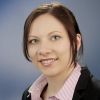
Sanna Pampel
- Course: PhD in Human Factors Research
- PhD title: Mental models of eco-driving: The measurement and activation of drivers’ knowledge and skills
- Year of graduation: 2016
- Nationality: German
- Job title: Research Fellow
- Company: University of Nottingham, UK
I am currently working as a Research Fellow in the Human Factors Research Group in the University of Nottingham. I am mostly planning, conducting and analysing research for various car manufacturers. The research is mainly about informing the design of automotive user interfaces including innovative concepts such as digital mirrors, driver state measuring, automated driving, and augmented reality technology. In addition, I am progressing into teaching, which currently consists mostly of supervising student projects.
ITS provided me with a range of experiences around researching drivers, using different research methods. Most research in my current job is conducted in driving simulators, which is very similar to the work I was doing in Leeds. I can say, though, that my PhD was more theoretical than my current work, which makes it applicable to many topics, and would not expire as quickly, say some technology would. In addition, I learned a lot about other transport research fields such as transport economics and social issues. This has broadened my perspective and created awareness of the implications of vehicle automation, for example. This broad view is also important when it comes to forming new and very relevant research ideas, together with car manufacturers, public funders as well as potential collaborators from various backgrounds. In general, I developed a lot as a researcher, professionally and personally, in many ways, which are all helpful for my career.
I was looking for a PhD topic in human-computer interaction, but initially in the field of software used in larger organisations, as I was previously working as a software developer. When I went to an event in Leeds I accidentally met someone from ITS, who told me about the institute and the driving simulator. Browsing the ITS website I stumbled upon my ideal PhD topic, but in the automotive field! In the driving domain, I have been able to work with fuel-efficiency, and also with driving safety, rather than making organisational processes more efficient, and ultimately replacing human labour with software. I contacted the person behind the advertisement and met up with my future supervisors. In the meeting, the ideas just emerged, and I found that we made a perfect match. I applied for a PhD and have not looked back since.
A PhD can be a very interesting and rewarding experience. There is so much to learn, and there are many opportunities to develop yourself further. However, one point is crucial. You really have to want to do a PhD. Personally, I see myself as a researcher who loves reading, learning, critically discussing, discovering, and getting really excited about different topics. Hence, I was quite sure that a PhD was right for me.
I love obtaining novel results in my research and getting them out into the world through conference presentations and publications. I think both my first journal paper and my PhD thesis have been my highlights.
Regularly there are job adverts circulated via ITS, which are very helpful, also in the early phases of the PhD to get an overview of the kind of jobs available ‘out there’ were useful. Once I started applying and going to interviews, the Careers Centre helped me a lot with targeting my application very well. I landed a very interesting job (my current employment), and I even ended up having to rush to finish my thesis before my start date.
I would advise all students, and in particular international students, to seek stepping out of their office, mingling beyond their peers from the same area or culture, and generally getting outside their comfort zone. With only a few German colleagues and students around, I naturally made international friends. Imagine, last summer I visited one of my closest ITS friends in Jordan, and other exciting trips are in the pipeline! There are many opportunities to get involved, such as representing the ITS PhD community in various committees, organising social and research activities and leading field trips. The annual ITS Eurotrip to the Netherlands, Germany and Belgium was definitely one of my highlights. First, I was an organising team member and then the team leader in the following year. Such activities do not only develop language and cultural skills, or make for an interesting CV, but also develop you professionally, as you learn to organise, improvise and communicate.

